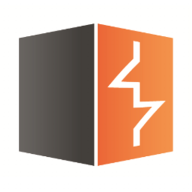

Veracode and PortSwigger Burp Suite Professional are leading solutions in the application security space. PortSwigger Burp Suite Professional seems to have the upper hand in features, while Veracode offers an edge in support and pricing satisfaction.
Features: Veracode provides comprehensive testing capabilities, seamless integration with CI/CD pipelines, and a user-friendly interface designed for streamlined operations. PortSwigger Burp Suite Professional offers an extensive suite of tools for advanced web application security testing, a modular approach for customization, and a robust analysis framework that allows detailed and tailored security assessments.
Room for Improvement: Veracode users have highlighted the need for faster scanning speeds, more flexible report customization, and enhancements to its vulnerability detection accuracy. PortSwigger Burp Suite Professional users seek improvements in easing the learning curve, enhanced documentation, and refinement in user onboarding processes.
Ease of Deployment and Customer Service: Veracode supports a straightforward deployment process coupled with reliable customer support, offering valuable assistance throughout setup and ongoing operations. PortSwigger Burp Suite Professional is commended for effective deployment mechanisms but is noted as lacking in direct customer support compared to Veracode.
Pricing and ROI: Veracode is often viewed as cost-effective, offering a satisfactory ROI by balancing setup costs against benefits received. PortSwigger Burp Suite Professional, while having higher initial costs, is perceived as a worthwhile investment due to its advanced features, with users feeling that the enhanced security features justify the expense over time.


Burp Suite Professional, by PortSwigger, is the world’s leading toolkit for web security testing. Over 52,000 users worldwide, across all industries and organization sizes, trust Burp Suite Professional to find more vulnerabilities, faster. With expertly-engineered manual and automated tooling, you're able to test smarter - not harder.
PortSwigger is the web security company that is enabling the world to secure the web. Over 50,000 security engineers rely on our software and expertise to secure their world.
Veracode is a leading provider of application security solutions, offering tools to identify, mitigate, and prevent vulnerabilities across the software development lifecycle. Its cloud-based platform integrates security into DevOps workflows, helping organizations ensure that their code remains secure and compliant with industry standards.
Veracode supports multiple application security testing types, including static analysis (SAST), dynamic analysis (DAST), software composition analysis (SCA), and manual penetration testing. These tools are designed to help developers detect vulnerabilities early in development while maintaining speed in deployment. Veracode also emphasizes scalability, offering features for enterprises that manage a large number of applications across different teams. Its robust reporting and analytics capabilities allow organizations to continuously monitor their security posture and track progress toward remediation.
What are the key features of Veracode?
What benefits should users consider in Veracode reviews?
Veracode is widely adopted in industries like finance, healthcare, and government, where compliance and security are critical. It helps these organizations maintain strict security standards while enabling rapid development through its integration with Agile and DevOps methodologies.
Veracode helps businesses secure their applications efficiently, ensuring they can deliver safe and compliant software at scale.
We monitor all Application Security Tools reviews to prevent fraudulent reviews and keep review quality high. We do not post reviews by company employees or direct competitors. We validate each review for authenticity via cross-reference with LinkedIn, and personal follow-up with the reviewer when necessary.